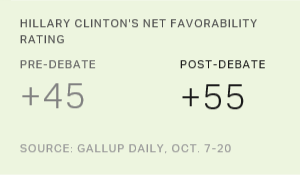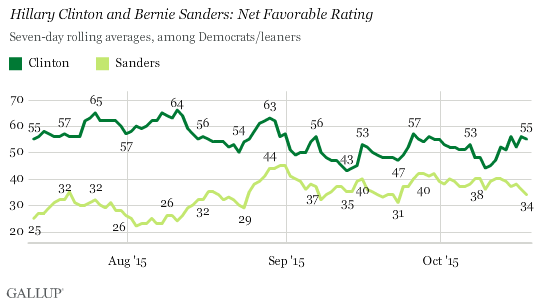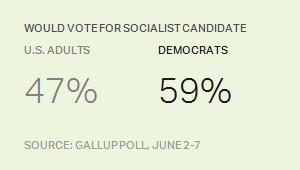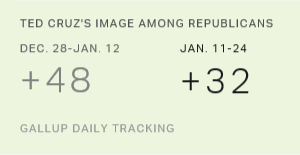A lot of change transpired in the Democratic presidential nomination race over the last week or so. The Democrats had their first official debate last week, Jim Webb -- former Marine, secretary of the Navy and senator -- dropped out of the race for the Democratic nomination, and Vice President Joe Biden announced that he wasn't going to announce his own bid for the nomination.
The Biden decision was a very consequential one for front-runner Hillary Clinton; the Webb decision was much less so.

Webb has a fascinating background -- I didn't mention above that he is a bestselling novelist and nonfiction writer -- but he apparently gets bored easily. He quit as secretary of Navy after only a year on the job and decided after only one term not to run for reelection as senator. Now, after a few desultory months of a not-too-active campaign for his party's presidential nomination, he has left that behind as well.
There's nothing in the data available to us that suggests Webb had developed any kind of following among Democrats. We quit tracking Webb back in early September when it was clear than his numbers were not changing. At that point only 26% of his own party identifiers nationwide knew enough about him to have an opinion, and he had a net favorable rating of -4, meaning that more Democrats who knew him held an unfavorable opinion than favorable -- an unusual situation for a candidate among members of his own party. It's safe to conclude that his departure from the race will make little difference, unless perhaps he decides to run as an independent -- a door he left open. That wouldn't be so easy either. Webb lacks both name identification and massive wealth, one or both of which would be useful for a candidate attempting to launch an independent bid for the presidency.
Joe Biden was, on the other hand, very well-known among Democrats, some 93% of whom have an opinion of him, splitting 78% favorable, 15% unfavorable.
Although not directly comparable for methodological reasons, our most recent tracking data for Hillary Clinton shows her with a 71% favorable, 20% unfavorable rating among Democrats. The two are equally well-known, and Biden appears to be just as or more popular than she is.
Of course, Biden has not been on "active duty" as a candidate, while Clinton has. In fact, before her campaign really got going, a survey conducted in May showed her with 83% favorable, 15% unfavorable ratings from Democrats, a little better than Biden today. All by way of saying there is a good chance that Biden's image would have deteriorated at least modestly if he had jumped into the campaign and journalists and other candidates began to focus on his positions, his past and everything else. Still, Democrats at this juncture like Biden every bit as much as they like Clinton, meaning that he certainly would have provided more formidable competition for her than has been the case from Webb, Martin O'Malley and Lincoln Chafee to this point.
I mentioned that Hillary Clinton's favorable rating is now at 71% among Democrats. That's a rolling average over the last two weeks. The chart below shows Clinton's image using a shorter seven-day rolling average, which provides us the ability to look at her rating just for the week following the recent debate. Here we see that her trend has been up. Her net favorable rating had fallen to as low as 45 among Democrats just prior to the debate and is now at 55 a week after the debate. A clear uptick. Her major opponent at this point, Vermont Sen. Bernie Sanders, has seen his net favorable rating drop from as high as 40 to as low as 34 a week later. (Sanders did, however, gain a little in name identification, up to 65%; Clinton's is at 91%.)

So, I would say the Democrats of this country reacted well to Clinton's debate performance, not so well to Sanders'. I would add that Biden would have been formidable competition for Clinton and that Webb's dropping from the race will have a negligible effect.
As I write this, Clinton is in front of the House Benghazi committee. Time will tell if the news reports of that episode in her political odyssey will have an impact on her standing among Democrats.

